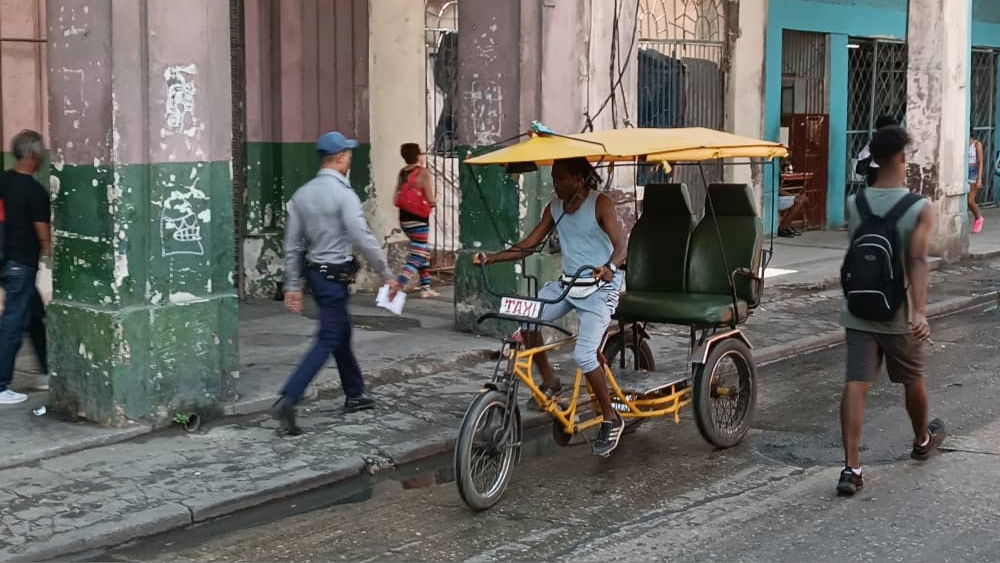If there was any doubt about the relationship between the economic package that the Cuban regime is about to implement and the new Code of Ethics imposed on the country's cadres, whether or not they are members of the Communist Party of Cuba (PCC), Miguel Díaz-Canel dispelled it on January 28.
Speaking at the first meeting of the Council of Ministers in 2024, the president announced various political processes aimed at achieving the same objective with which he undertook a tour of the country: for Cubans to understand the need to apply the economic package that the regime is calling "Government projections to correct distortions and boost the economy." In these processes, Cuba's cadres will play a key role.
"It is about reflecting, evaluating and proposing, with rigor and creativity, solutions to the problems in each given place. Everyone has a great responsibility in this; fundamentally, the cadres at different levels, who must prepare well in order to carry out these processes all across the country," the regime's newspaper Granma media quoted him as saying.
The official media source also cited Díaz-Canel's call to "combat everything that deviates from the spirit of the Revolution in our society." His words, as well as the tour that he undertook through the provinces to convince Cubans that the package is necessary, and will yield benefits, reveal his concern over the population's dissatisfaction with the new measures, in the wake of the failure of the "Ordering Task," recognized by the Government. But they also reflect his fear that some cadres will be tempted to propose alternatives deviating from the lines traced by the regime.
The Cadres of the Cuban Revolution Code of Ethics Presidential Decree, appearing 15 days earlier in the Official Gazette of the Republic, seeks to shield the regime from such hindrances.
The existence of a Code of Ethics for cadres is nothing new in Cuba, but this one features an intensified ideological component and the obligation to adhere to Fidel Castro's ideas.
In the current context, as discontent becomes more evident, and could extend to the cadres, the Code constitutes a threat to those who may manifest weariness with the model.
It is also a reminder that Cuba's cadres are not public servants, but rather subordinates of the regime.
On July 11, 2021, some cadres did not respond to Díaz-Canel's combat order to crush peaceful protesters demanding freedom and an end to Communism in the streets. Thus, the new Code of Ethics seeks to ensure that no one dares to remain at home in the event of a new summons from the ruler under similar circumstances. Doing so could violate the principles set down in the document.
The first of these principles is patriotism, translated into "loving the homeland, its history, identity and culture; honoring the values that make up the Cuban nationality; with one's conduct guided by the example of our martyrs, heroes and leaders; respecting national symbols; having political sensitivity" and "defending the Revolution."
The cadres must also be loyal "to the Communist Party of Cuba," "the Revolution" and the thought of Fidel Castro.
The discipline they must show consists of "promoting respect for and conscious loyalty to the Communist Party of Cuba, and contributing through one's actions to the fulfilment of the programs, guidelines and agreements approved by its Congress and other party leadership bodies."
Now, it does not matter whether they are members of the CCP or not. As DIARIO DE CUBA explained when the Presidential Decree was published, the Code of Ethics was approved in May at the 6th Plenary Session of the PCC (Communist Party of Cuba), of which Díaz-Canel is the first secretary.
At that time the Code was only binding on members of the only legal party in Cuba, and compliance with it could not be demanded from cadres who were not.
By mandating compliance with it via presidential decree, signed by Díaz-Canel on November 8, 2023, its mandatory nature was expanded to all the cadres in Cuba.
As per the Code, a violation of any of the principles would result in the carrying out of a "disciplinary analysis in accordance with the applicable statutes, and rules or regulations, without prejudice to other enforceable responsibilities, commensurate with the severity of the violations committed."
This threat bars the cadres from expressing their disagreement with the new measures, the State's control over the main means of production in Cuba, and with the Party leadership, with the honesty required by the Code.
Any views undermining the regime's interests could be interpreted as a violation of the requirement to cultivate "anti-imperialism," which means "defending, preserving and being faithful to the principles of socialism that we have to be declared irrevocable."
